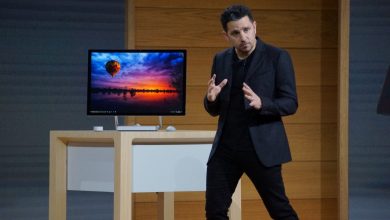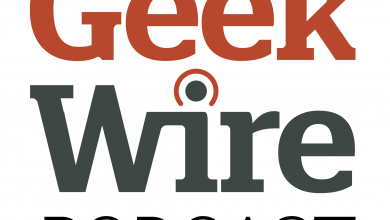GeekWire Radio: Secrets of successful tech acquisitions, with Pioneer Square Labs co-founder and ‘Acquired’ co-host Ben Gilbert
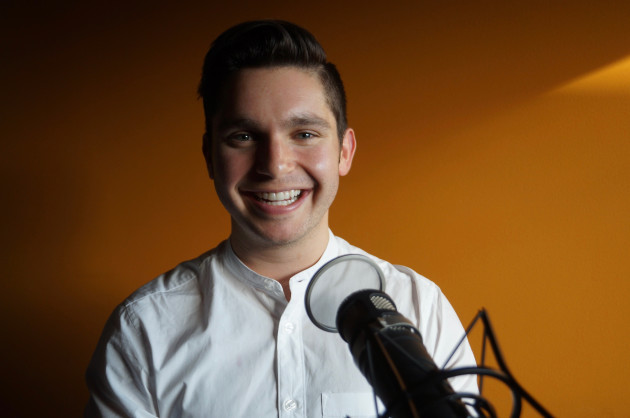
Ben Gilbert knows startups and he knows tech acquisitions. This week on the GeekWire podcast, we asked him about both, grilling him on the best and worst acquisitions, their characteristics, and how he grades them, as well as which tech startups he thinks are slated for acquisition in the near future.
Gilbert is the co-founder of Pioneer Square Labs, a Seattle based studio that creates and launches technology startups, and is the former head of the Microsoft Garage, Microsoft’s own internal technology incubator. He is also the co-host, along with David Rosenthal of Madrona Venture Group, of the podcast Acquired, which analyzes successful tech acquisitions.
Read on for edited excerpts from his conversation with GeekWire co-founders Todd Bishop and John Cook, where Gilbert explains why YouTube was a bad acquisition for Google, why Instagram was a great acquisition for Facebook, and why Slack might be the next big thing to be acquired by … somebody.
Todd Bishop: Our guest on the show is Ben Gilbert. He is the co-founder of Pioneer Square Labs, a Seattle based studio that creates and launches technology startups. He’s also the co-host of a great podcast. John, I am addicted to this podcast.
John Cook: You just told me! I need to start listening to this, the hottest thing on the web.
Bishop: Absolutely. It’s called Acquired. It’s about technology acquisitions that actually went well, or at least mostly went well.
Cook: Which I have some specific questions about.
Bishop: Ben Gilbert, it’s great to have you on the show.
Ben Gilbert: Yeah, thanks for having me.
Bishop: Great. Let’s talk about Acquired. First off, we want to get into the—
Cook: We should probably tell people it’s acquired.fm if you’re interested in checking this out.
Gilbert: Little throwback to that wavelength.
Bishop: Ben, tell us about the inspiration for Acquired, first off, because you always hear out there about acquisitions that have not gone well. It’s not completely rosy, the show. You’re very realistic about acquisitions. You give them a grade at the end. Why did you and David Rosenthal decide to to this show?
Gilbert: A lot of the reporting that you see I think is for how much money went into a company and then what were they purchased for. People like to look at that multiplier and that delta and go, “Oh my gosh, what a crazy acquisition, bought for this much money by this big company.” What you don’t see reported a lot is 5, 10 years later, what happened to that asset that they acquired within the company, and how did it create more value than it cost.
David and I, we thought that was interesting. David, as an investor and me, as a guy that starts startups at Pioneer Square Labs. We wanted to work backwards — once you can determine how an acquisition can go well and how the acquirer can benefit, then how do you build companies to put yourself in that position?
Bishop: We should note that David is a principal at Madrona Venture Group, which is a very prominent venture capital firm here in the Seattle region, and he’s Ben’s co-host on Acquired. You’ve analyzed, so far, quite a few companies and acquisitions. Which would you say is your favorite? “Favorite” defined as the one that seems to have gone the best. You could look at everything from YouTube, to Bungie, to Pixar. Which is the best, in your view?
Gilbert: Working off of a spreadsheet perspective, it’s got to be Instagram. Purchased for around a billion dollars. A research report last year that came out that said internal valuation is $33 billion. They’re going to do several billion in revenue, on top of Facebook’s ad platform, they’ve been building out over the last several years this year. Instagram is the gift that keeps on giving, and forgive me for saying this, but it has “synergies” with the rest of the business.
Cook: Then, by that logic, they probably sold too soon.
Gilbert: Yeah. That’s the funny thing, is every time that we come up with a really successful acquisition, we’re looking at from the perspective of the acquirer, not the acquired company. You’re looking maybe at Kevin Systrom saying, “Why didn’t you hold on to that dude?” But the nuance there is that the reason it’s become so valuable is because they leveraged the scale of all the existing advertisers that were using the Facebook platform. It’s sort of a goofy mantra, but we’re really looking for the 1 plus 1 equals 3 acquisitions.
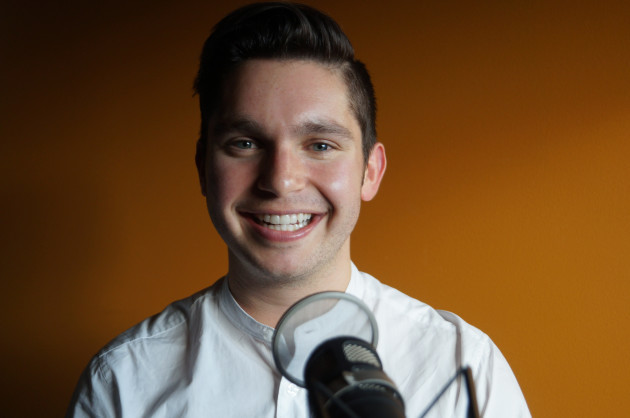
Cook: Instagram sold for about a billion dollars to Facebook. How much money went into Instagram initially? Just so we can look at that.
Bishop: This is the company that is famous for having only a handful of employees when it was acquired by Facebook.
Cook: Yeah, what was it? 15 employees?
Gilbert: It’s around 15, yeah. Their retention has been incredible. If you looked on LinkedIn — this is some of the research we were doing before — we looked at all the employees on LinkedIn that worked there at the time of acquisition. Only 2 have left.
Bishop: That really speaks to not only the minimum investment that went in upfront but the ability of Facebook to hang to those folks.
Cook: I’m looking at CrunchBase to answer my own question there. It says that there was 57.5 million in 3 rounds raised in Instagram.
Bishop: Then it sold for upwards of a billion dollars.
Gilbert: That was after a pivot. They were Burbn before. It was kind of a location-based, Foursquare-type thing. They burned a lot of cash on that before they pivoted and did Instagram.
Cook: Just to put that in comparison, you also talk about YouTube on the show.
Bishop: Right, you and David, the grades were all over the map on that.
Gilbert: Yeah it’s my first C!
Cook: Yeah because YouTube, from a financial standpoint was tremendously successful too, and as you point out on the show, it happened kind of coming out of the dot com bust era, when a lot of those types of acquisition weren’t occurring. That was roughly, what, 125 million raised on a little more than a billion dollar acquisition? Instagram raised a little bit less money. (Correction: YouTube only raised $11.5 million.)
Bishop: Why did YouTube get a C?
Cook: Yeah why did you give them a bad grade?
Gilbert: YouTube, on top of being extremely expensive to run from an infrastructure perspective, they actually pay quite a bit of money out to content producers. The cogs of that business, the costs associated with it are extremely high. All signs are pointing to the fact that it’s approximately still a break-even business. There are ancillary benefits, where owning YouTube benefits all other parts of Google and eventually feeds into more Google searches, more Google ads displayed. But on the property of YouTube itself, it’s not a highly profitable property.
Bishop: You guys talk a lot about, on the show, the fact that people don’t necessarily go to youtube.com. They’re coming in from other places.
Gilbert: It’s not a “destination site.” I subscribe to Stratechery, it’s the really awesome tech analyst newsletter that comes out every morning. Ben Thomson just harps on it over and over and over again, that in this world there is such a thing as a destination site, and if you’re a destination site you can afford to be very expensive. You have all the attention and you’re the front door to the internet for people. That can be existing publications, like The New York Times, or it can be social media sites, like Facebook. He who controls the front door controls where you direct attention. If you’re not a front door, then you’ve got to run a little leaner.
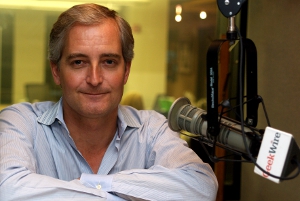
Bishop: Bungie is another acquisition that you focus on. You actually had Ed Fries, the former Microsoft Games executive, on to talk that through, which was fantastic. I would recommend folks start with that episode if they go and listen to the Acquired podcast. Bungie is a unique one because it was acquired and then spun out of Microsoft. (This is the video game company that makes Halo.) Do you think Bungie was a successful acquisition for Microsoft.
Gilbert: Yeah absolutely. Even looking at where Bungie is now and the result, it jumpstarted the Xbox. There’s a pretty decent chance the Xbox business would not be successful without acquiring Bungie and having Halo be the dominant title.
Bishop: Right, it seems like it was very successful upfront but then it kind of struggled later on, obviously.
Gilbert: Yeah. I guess to the degree that you believe that the Xbox has been successful for Microsoft at all, then we should say that Bungie was necessary.
Bishop: What grade would you give the Bungie acquisition?
Gilbert: I think I gave it an A-. I might have been nice because Ed was being on the show.
Bishop: I thought so. I sensed that dynamic. Ed’s a nice guy.
Gilbert: Great guy.
Bishop: It’s hard to sit there and give him a B- or something.
Gilbert: F, you failed!
Cook: I’m curious why you start with the idea of acquisitions that did go well, because there’s so much fodder in the stories of failure. Maybe this is episode 2, or the next season is going to be failures.
Bishop: The ones that bombed.
Gilbert: Yeah, I’ll tell you our original insight there was that people love covering the ones that bombed because bad news sells, so let’s take a deeper dive on the ones that have continued to slowly under the radar do better and better over time. As it turns out, we’ve gotten through 7 episodes, and we’re not finding as many good ones as we had hoped.
Cook: Have you found any common DNA across the companies, in terms of what has led to a successful acquisition?
Gilbert: Absolutely. Keep the team intact. Keep them focused on what they were doing beforehand. And let them keep their culture. That is what it’s all about.
Cook: A great example of this would be—
Bishop: Bungie.
Cook: Well, I was going to use another one, Amazon acquiring Zappos. I don’t know if that was a big success or not, but I’ve always been struck at the Amazon culture and how it compares to the Zappos culture. They seem very, very different to me. And yet it kind of runs as its own thing.
Bishop: Ed Fries told a great story on the podcast about Bungie where he went through and created a bunch of Microsoft-style offices for them. They told him, “Sorry buddy, tear down those walls.” It seems like that really is instructive, because that was a good acquisition.
Gilbert: Yeah. If you look at the best modern M&A strategy, Facebook keeps writing the rule book over and over again. Whatsapp, Instagram — these are properties that are growing tremendously after acquisition. And you look at Kevin Synstrom, CEO of Instagram, not VP of something or other in some division — its CEO.
Cook: Facebook’s good at acquisitions.
Gilbert: Phenomenal.
Cook: Let’s say who’s bad here? Microsoft? Nokia? They’ve had some kind of busts, right?
Gilbert: They’ve had some ups and downs.
Cook: Then, Amazon maybe seems like pretty decent. Amazon’s not that acquisitive of a company, historically.
Bishop: If you could acquire any company, any company in the Pacific Northwest, in Seattle, and you think you could turn it into a successful acquisition. Let’s imagine that you’re an anonymous tech giant, which I realize makes the decision—
Cook: Are you acquiring a privately held company?
Bishop: Any company. This is my way of asking you which companies out there are most interesting to you right now?
Cook: Why won’t you acquire Microsoft or Amazon? The value—
Bishop: Maybe he wants to. Any company, public or private.
Gilbert: I’m going to caveat the answer with, I think that it would all depend what existing resources I had as a big company, because I would look for ones that were a part of my strategy, blah blah blah. But, really, something in VR.
Bishop: Virtual Reality, yeah.
Gilbert: I think that we are 2, 3 years too early for that right now in terms of seeing any sort of consumer adoption on it. And the high price points of everything coming out, it’s going to be a niche thing for a while. But every time I meet with a VR entrepreneur that’s working on that, if they have some ability to ride it out for the next few years and position themselves correctly, it’s going to be huge.
Bishop: Yeah. Okay this is the second week in a row that we’ve had a big proponent of VR.
Cook: People love their VR.
Bishop: Why is VR going to be different this time around?
Gilbert: Yeah, have you tried the Vive?
Bishop: I have not personally. I’ve tried the Oculus, I’ve tried the HoloLens. I’ve not tried the Vive.
Gilbert: It is the first time that I had a visceral reaction to leaving a VR device.
Bishop: You didn’t want to get out.
Gilbert: I didn’t want to get out. It felt cold, and I didn’t want to leave it. It was really scary. That’s the kind of thing you see in a sci-fi movie.
Bishop: What do you mean it felt cold? Leaving it felt cold?
Gilbert: Yeah. I was on this beautiful island. I felt warm. The craziest thing is actually, I walked up to a cliff and tried to get myself to jump off it and couldn’t, even knowing that the floor in front of me was still the floor in front of me.
Bishop: I’ve had a very similar experience with the Oculus with the backpack on, back 2 years ago. It was a demo where I was swinging a light saber on top of a big pedestal. My body was telling me, “Do not step forward.” So I know the feeling.
Gilbert: Yeah. I just think it makes everything that is physically expensive cheaper because you can do it virtually and have a very realistic experience. All sorts of training. There’s incredible enterprise use there. There’s entertainment use. I think that there’s going to be a really big thing around living other people’s lives. We’ve seen with Twitch, live is blowing up and live is the interaction platform that people are looking for — this real time thing. What better way than to experience something like that live and immersive.
Bishop: Tell us about what’s next for Acquired. Are you running out of positive technology acquisitions to talk about?
Gilbert: We’re running out of the crazy outlier, extremely positive, un-debatably positive ones. I’m excited to get into this next episode that we’re going to release on Monday with Kurt Delbene talking about the outlook mobile acquisition of Acompli and the suite of other companies they acquired for that. It really is too early to tell for that one. I think one thing that we’re excited—
Cook: Twitch is probably too early too.
Bishop: Yeah, you guys acknowledged that on the show — that it was very early.
Gilbert: Yeah, although there have been research reports that are showing what the projected revenue already is from 2015 and for 2016 on Twitch. It’s already proving to be well worth it.
Cook: You guys need go back to the archive, like Amgen buying Immunex, or something like that.
Gilbert: Microsoft acquiring PowerPoint.
Bishop: Oh yeah, that would be a great one! That would be good. Although probably doesn’t resonate as much with the audience as things that are still in the cutting edge.
Gilbert: We have a pretty good thesis around what makes a good acquisition or what makes a bad one right now, and what those trends are. What I’m excited to do is start looking at ones that have happened more recently that we haven’t been able to determine if they’re good or not, and start making predictions based on what we’re seeing, if they follow the trends of ones that were good or follow the trends of ones that fell apart.
Bishop: You already talked about the hallmark — one hallmark — of good acquisitions and that’s keeping the team together and maintaining their culture. Are there any other good hallmarks?
Gilbert: Yeah. Another big one is when the acquirer has channel and the acquiree has product. I keep talking about Instagram because it was like the freaking grand slam of acquisitions, but Facebook had a place where people were already putting their ad dollars. To be able to have another platform that served a completely different purpose, that served a different audience, “Hey, you already know the tools, put more ad dollars here.” It’s like every time you match up great product into larger great channel, great things happen.
Bishop: What about the hallmarks of the bad ones? Is there a consistent characteristic that you can point to and say, “That’s not going to end well.”
Gilbert: Yeah, we haven’t done any episodes on it but the biggest hallmark of that one is forced integration. I think that any time that you acquire a company because it’s a team of talented people doing great things, and maybe you’re trying to kneecap a competitor, or maybe you’re worried, you’re making a defensive play, you have something blowing up and you’re concerned that it’s going to blow up. Every time that they try and do some integration into their current product, it seems to fall apart.
Bishop: Maybe your competitor just acquired a big online advertising company and you felt like you had to follow suit, even though the big ad market was actually shifting to search.
Gilbert: Yeah, who knows?
Bishop: You do need to get Brian McAndrews on to talk about aQuantive, I have to say.
Cook: What company do you think we’re going to see acquired in 2016?
Bishop: Like big, big brand name … We’re stumping Ben here.
Cook: No, he’s just thoughtful.
Bishop: He’s a thoughtful guy. I can see why Greg likes to have you around.
Gilbert: Slack.
Bishop: Oooh, good one.
Cook: That’s a good connection. Microsoft? Although Microsoft bought Yammer which I guess, wasn’t that kind of the same area.
Gilbert: I think it was the same thesis with the wrong product.
Bishop: Yeah, I agree with you, Microsoft should buy Slack. I have to tell you, I was accidentally locked out of Slack this week—
Cook: He was driving me crazy!
Bishop: I started to have withdrawals. If you’re listening this far, you know what Slack is, right? It’s online work collaboration, basically. It’s so simple. They’ve got so much room to improve that product. Although maybe they shouldn’t.
Gilbert: Can I ask one back? I almost said this but I don’t know if I have conviction around it. Do you think Twitter is going to get acquired?
Cook: Is the stock still plummeting?
Gilbert: It’s certainly not one that the board likes.
Cook: I think based on just the valuation of it, at some point, it probably would be.
Bishop: It’s interesting to think about that. Who would buy them? Facebook? Google? Amazon? Microsoft? Microsoft and then Steve Balmer would somehow, I mean, I don’t know how that deal would work, because he has a pretty large stake or mid-single digit stake in Twitter at this point.
Cook: Yeah, they’re valued at $11.8 billion right now
Bishop: He could convert that into more Microsoft. At any rate, that’s a subplot. Yeah, that’s a good one. Yeah. I like Slack.
Cook: Speaking of Brian McAndrews, there are rumors than Pandora is [up for acquisition.] Because Brian McAndrews is the former CEO of aQuantive, which was a Seattle based online advertising company. McAndrews is now at Pandora, and there was reports out that Pandora is potentially on the block.
Gilbert: I saw this.
Bishop: Good deal. Well, Ben Gilbert, thank you very much for being on the show.
Gilbert: Yeah, thanks for having me. It’s been fun.
Conclusion: So above is the GeekWire Radio: Secrets of successful tech acquisitions, with Pioneer Square Labs co-founder and ‘Acquired’ co-host Ben Gilbert article. Hopefully with this article you can help you in life, always follow and read our good articles on the website: Ngoinhanho101.com




